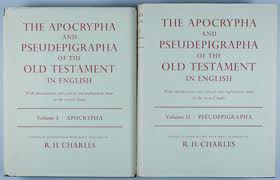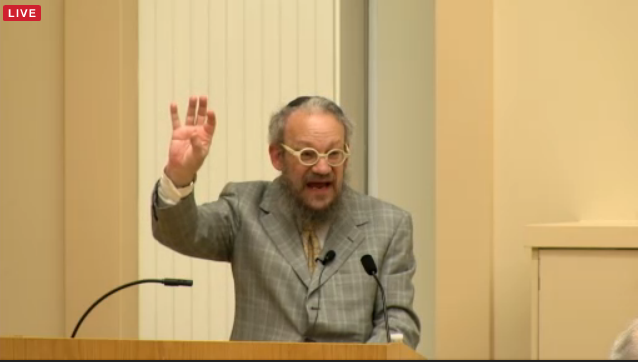
Robert Henry Charles’s classic edited collection of translations of Apocrypha and Pseudepigrapha of the Old Testament (1913) is made available by the Christian Classics Ethereal Library (CCEL).
Another copy is available on Internet Archive: vol 1 and vol 2.
Although somewhat superseded by James Charlesworth’s Old Testament Pseudepigrapha (1983-85) and Bauckham, Davila, and Panayotov’s Old Testament Pseudepigrapha: More Noncanonical Scriptures 1 (2013), the translations in Charles’s edited volumes are still regularly used and referred to.
Volume 1: The Apocrypha of the Old Testament
Historical Books
Esdras (Cook)
1 Maccabees / William O.E. Oesterley
2 Maccabees / James Moffatt
3 Maccabees (Emmet)
Quasi-historical Books Written with a Moral Purpose
Tobit (Simpson)
Judith (Cowley)
Wisdom Literature
Sirach / George H. Box and William O.E. Oesterley
Wisdom of Solomon (Holmes)
Additions to and Completions of the Canonical Books
1 Baruch (Whitehouse)
Epistle of Jeremy [Jeremiah] (Ball)
Prayer of Manasses [Manasseh] (Ryle)
Additions to Daniel
Prayer of Azariah and Song of the Three Children (Bennett)
Susanna (Kay)
Bel and the Dragon (Witton Davies)
Additions to Esther (Gregg)
Volume 2: The Pseudepigrapha of the Old Testament
Primitive History Rewritten from the Standpoint of the Law
The Book of Jubilees / Robert Henry Charles
Sacred Legends
The Letter of Aristeas (Andrews)
The Books of Adam and Eve (Wells)
The Martyrdom of Isaiah (Charles)
Apocalypses
1 Enoch (Charles)
The Testaments of the 12 Patriarchs (Charles)
The Sibylline Oracles (Lanchester)
The Assumption of Moses (Charles)
2 Enoch, or the Book of the Secrets of Enoch (Forbes and Charles)
2 Baruch, or the Syriac Apocalypse of Baruch (Charles)
3 Baruch, or the Greek Apocalypse of Baruch (Hughes)
Ezra (Box)
Psalms
The Psalms of Solomon (Gray)
Ethics and Wisdom Literature
4 Maccabees (Townshend)
Pirke Aboth (Herford)
The Story of Achikar [Ahikar] (Harris, Lewis, Conybeare)
History
The Fragments of a Zadokite Work [Cairo Damascus Document] (Charles)






